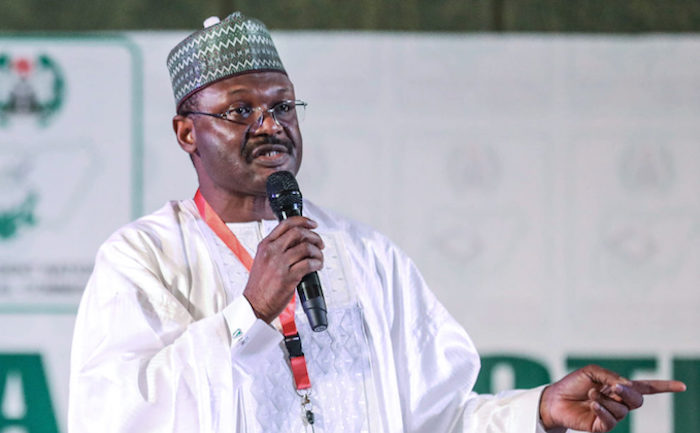Independent National Electoral Commission (INEC) officials have expressed optimism about the 2023 elections due to the smooth running of the governorship contests in Osun and Ekiti in 2019.
At a Wednesday retreat focusing on the Ekiti and Osun elections, where lessons were being shared for the upcoming general election, INEC chairman Mahmood Yakubu made the remarks in question.
According to Yakubu, the commission was prompted to take the initiative in implementing pre-election activities like training, printing of the voters’ register, preparation of the Registration Area Centres (RACs), and deployment of the Bimodal Voter Accreditation System (BVAS) in advance of the elections in both Ekiti and Osun .
Despite the commission’s important takeaways from the most recent off-cycle elections, the upcoming general election will be a massive undertaking. He continued, “The voter population, the number of polling units, election employees, security considerations, logistics, etc. are all tremendous.
A general election is a very different animal to manage, but the fundamentals are the same. After all, some questioned whether the same can be done in Osun, which is considerably larger and has a lot larger population, after the successful stewardship of Ekiti. Osun ended up being a better choice than Ekiti. We now have faith that the general election, run on the same principles, will also be a success.
According to Yakubu, the use of technology has increased the openness of the Nigerian voting process even as it has increased in complexity.
There is no denying that elections and the entire political process have become more difficult to handle over the past decade or so. The voting population has grown and changed in many ways, he noted.
To ensure smooth voter registration processes, increase voter access to polling units, and address issues of inclusivity for marginalized groups, “Electoral Commissions are subjected to greater public scrutiny and under increasing pressure to adequately respond to the diversity and complexity of the needs of various electoral stakeholders.”
To address these varied and nuanced requirements, the commission has worked hard over the past two election cycles (2011-2015 and 2015-2019). There have been major advancements in the administration of elections. Overall, electoral processes have become more streamlined and open to the public.
